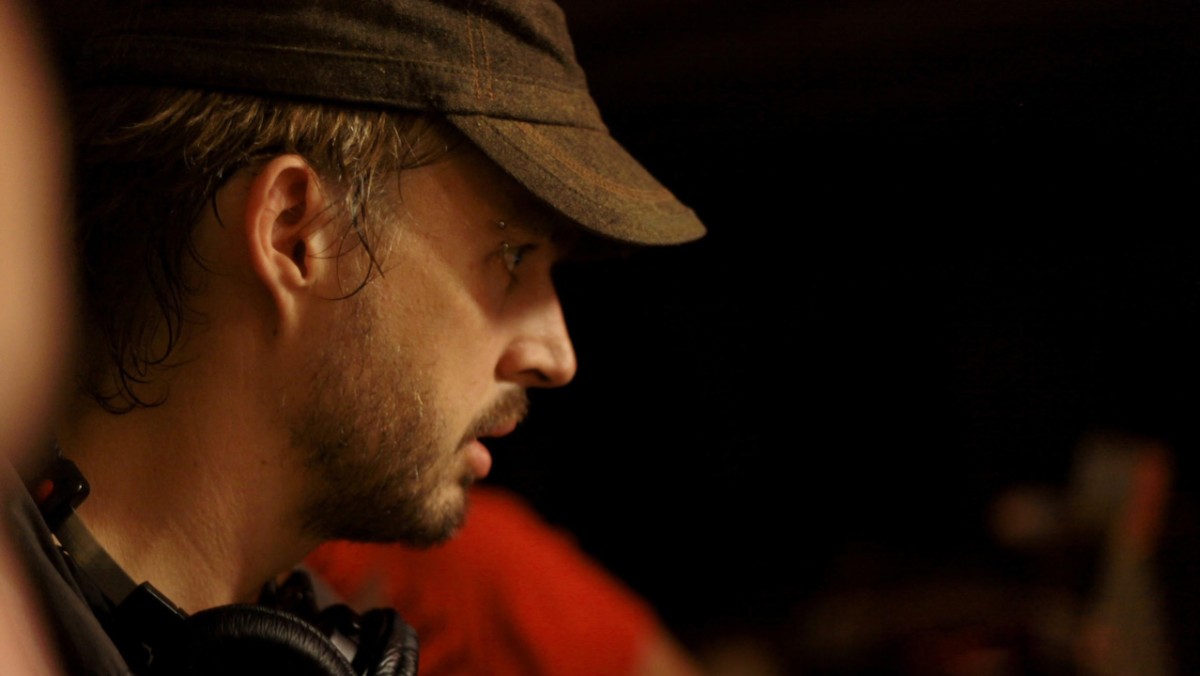
Gavin Michael Booth seats to talk about “Last Call“. He takes you through his filmmaking, dramatic choices, and collaboration with Actress Sarah Booth (Beth), who happens to be his wife, and co-writer and co-producer collaborator on Last Call, Daved Wilkins (Scott).
“I like “outside-of-the-box” challenges. I tend to gravitate towards storytelling that is raw with strong characters. With music videos, I’m always looking for how to get the song emotionally to the viewer in a way they maybe didn’t see coming. I’m definitely more run and gun than traditional studio filmmaking,” says Gavin
indieactivity: Why filmmaking and screenwriting? Why/how did you get into it?
Gavin Michael Booth (GMB): It’s an obsession starting as a movie fan as a child. I was always writing short stories in elementary school. I bought a VHS camcorder when I was 12 and made short films with my friends around the neighborhood. That brought my interest in writing stories. In high school, I always chose to make a video for a project instead of a written essay whenever possible. By the time I finished high school, the obsession had gripped me. I knew I only wanted to write and direct film and video projects.
Official Trailer for LAST CALL written/directed by Gavin Michael Booth, stars Sarah Booth & Daved Wilkins
LAST CALL is quite an endeavor in independent filmmaking. Can you take us through the process of bringing this film to life including pre, production, and post? Please include: the inspiration behind the story?
Gavin Michael Booth (GMB): I’ve long wanted to make a single-take feature film. I love real-time filmmaking and had been experimenting with the format over several music videos and two short films. When Daved Wilkins, my co-writer on the film brought the idea of a real-time film about a suicide hotline call to me, I was excited immediately. From his idea, we reworked it to be a stranger on the other end of the phone after discussions with a friend who volunteers for a hotline and realizing we couldn’t tell a realistic story if we followed to real-life parameters of how those calls are conducted.
Your experience working on the story, screenplay, production, premiere, and marketing?
Gavin Michael Booth (GMB): Last Call was a dream project. We made it in a shoe-string budget so that we could maintain control throughout the entire process. Daved and I crafted a very small crew, the cast is tiny by the nature of the story. Despite the massive technical and performance challenge we set out to achieve, it was a very streamlined, relaxed writing and shooting experience. Our premieres and early marketing through festivals have been truly wonderful. We’ve had an outstanding reaction to the film, won many awards around the globe, and been able to create some unique marketing materials to make our indie film stand out from the thousands of other films our peers are making.
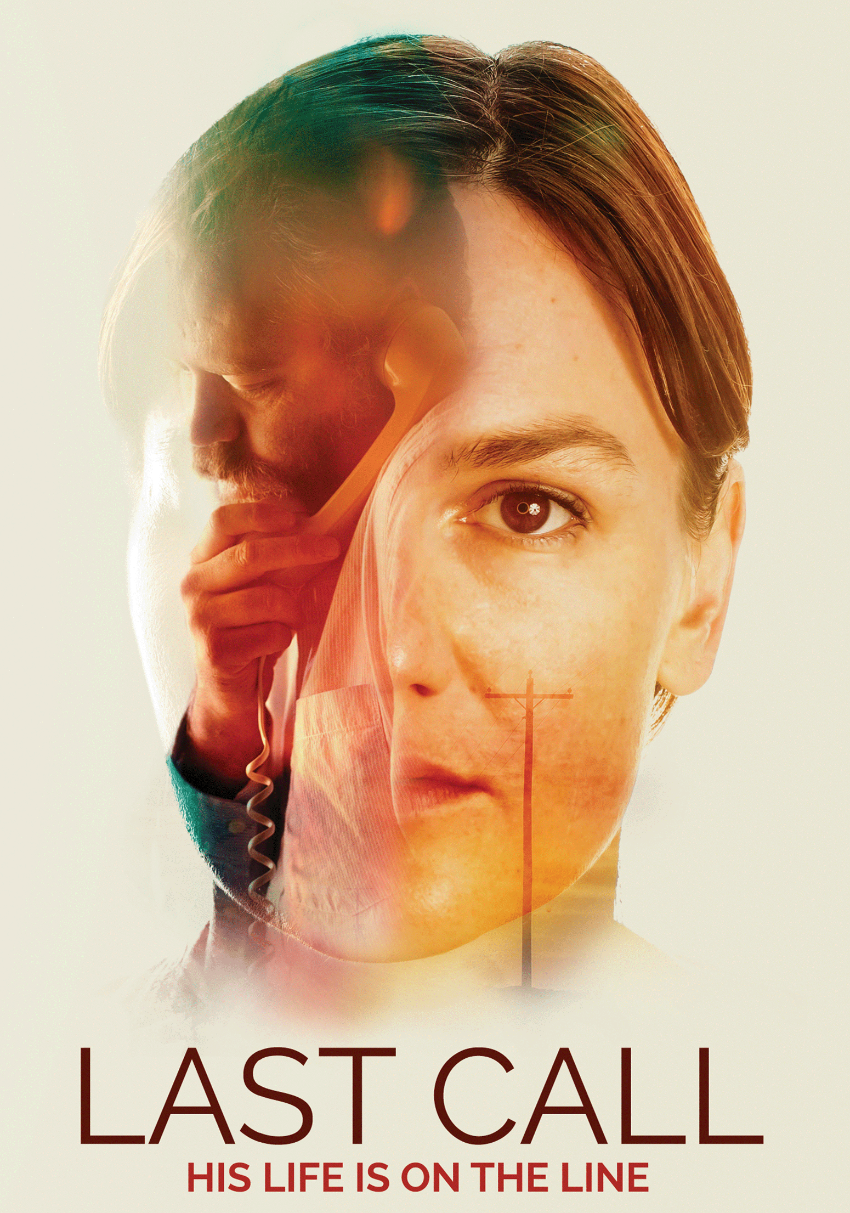
Re: The script, did you start writing with the cast in mind?
Gavin Michael Booth (GMB): We did start writing it with cast in mind. Daved as the actor in the film and also my co-writer, was writing this as a vehicle for himself. He is a great dramatic actor but it typically cast in comedic roles. Sometimes actors have to take charge of their career and show people they can do so much more. Sarah Booth is my wife and having worked with her in the past and also having seen some incredibly raw and intimate theatre work she had done, we knew she was perfect to take on this challenge.
What and how long did it take to complete the script?
Gavin Michael Booth (GMB): The script was still being re-written and re-worked right up until the day before we started rolling actual takes. All the way through our rehearsals. All in it was about a year only process of developing the story. We were forced to develop the technical approach to the film and find out locations simultaneously. Plus we were booked on other projects so it was written on and off over that year.
Since it’s co-written with one of the lead talent, Daved Wilkins, how did that affect the process?
GMB: We wrote it to suit his acting limitations. Ha! I kid. It was nice that it was Daved and Sarah as the actors – we were able to have a lot of organic conversations while in the writing process that helped inform the characters and suit the writing occasionally to their strengths.
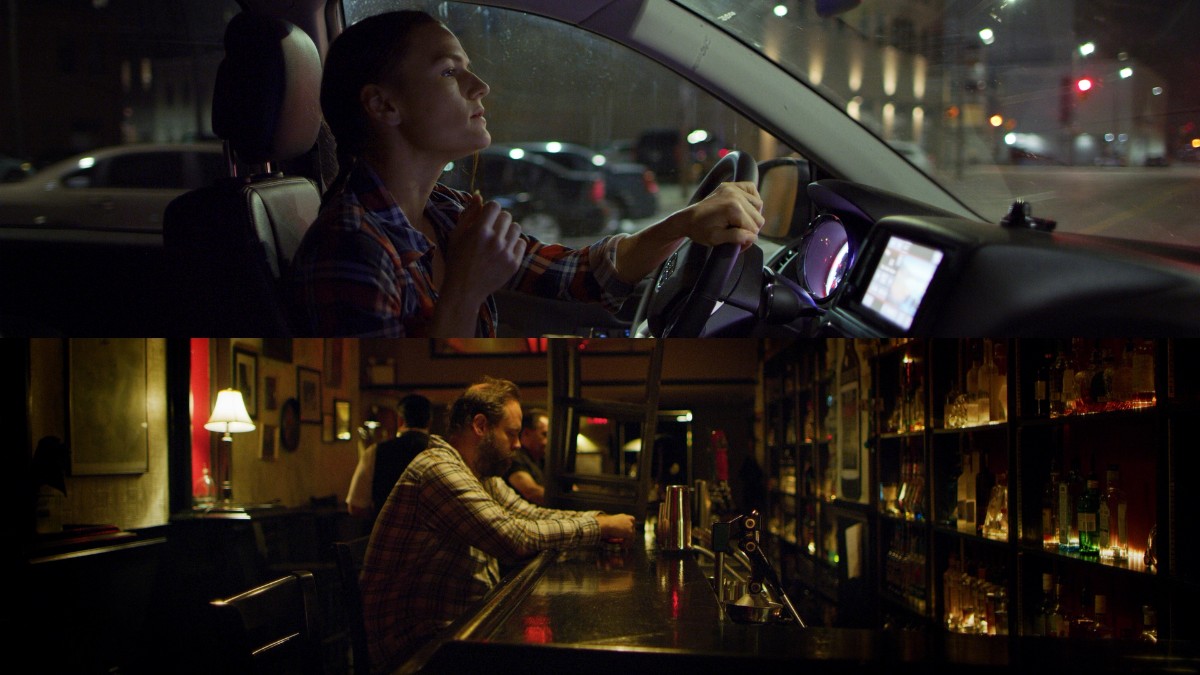
How did you put the crew and cast together?
GMB: There were a lot of hesitant people. When you tell someone you want them to do their job but they have to do it flawlessly for an entire film in a single take it can be a little staggering. Generally you’re shooting films in 30 seconds to a few minute takes. You have focus, camera shake, performance, sound, lighting issues in those small time frames. Trying to do it in a single-take for the entire film is another level. It’s asking people to win a Gold at the Olympics in their chosen sport. Plus we’re doing it on very little money on a very tight schedule with far less rehearsals than maybe we should have afforded ourselves. All that said, the team players we brought on board were people that were excited for the challenge and wanted to push themselves. It was important to us that they like the story and fully understand why we wanted to tell the film in a single take.
What was your rehearsal process and period?
GMB: Our ten days of rehearsal started by splitting the days. We’d work on Scott’s side of the story first. Blocking out the entire choreography and camera path. Sarah would be in the bedroom on the phone so that it was easy to stop-start blocking and rehearsals. Then for the second part of the day, we’d move over to the college location which served as Beth’s side of the story. We’d repeat the process, only now Daved was hidden in an office somewhere on the phone. It was important to be that the characters never work together in the same room, to keep the genuine fact they are strangers on-screen intact as much as possible.
Prior to us all arriving in Windsor, Ontario, Canada to start the project, I was already there, Sarah was in Montreal filming a movie and Daved was in Los Angeles. So we were forced by our own schedules to rehearse over the phone which served the story well.
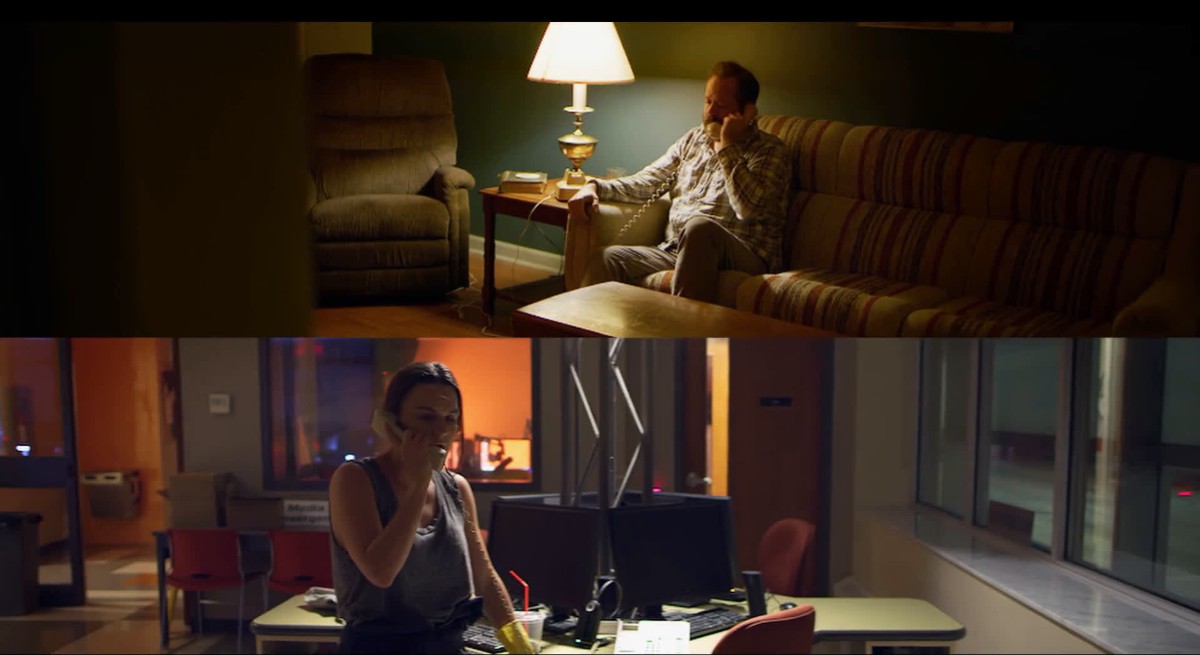
Once we had comfort in doing each side of the story separately, around the fourth day of rehearsal, we split up into the two teams and started running through takes simultaneously. Then our gaffer, DP, myself as director, and both the actors could watch back the takes as I mentioned earlier. Every department was able to see what they needed to adjust or could improve for the next day. Really no different than doing it shot to shot on a traditional film – just a much longer, far more complex two camera shot you have to adjust and tweak until it is perfect.
How did the unique shooting style affect performances?
GMB: I think you get a more honest and emotional performance when the actors are living in the skin of their characters for a longer period of time. There’s also an urgency to the energy of getting the take right that adds to the urgency of the plot. There are also definitely a few genius saves to things that went wrong during shooting – improv that both actors used to not have a take fall apart when there were technical issues. All things you will never know as an audience watching, that’s how well they kept it running.
As Director, Writer, Producer you wore many hats on this film – do you have a favorite role and why?
GMB: I think writing is my favorite. It is just me and my imagination. No budgets to think about, no suns setting to ruin how much time I have left to get something shot on location. The writing process is still a magic mystery to me. I sit there, looking at a page and story ideas just pop out of nowhere. It’s a thrill when big story moments or new film ideas hit. That’s a natural high. To a certain degree, everything after the script is finished is a series of never-ending compromises and though I love directing, editing and producing, just by the very nature of those processes you are forced to compromise.
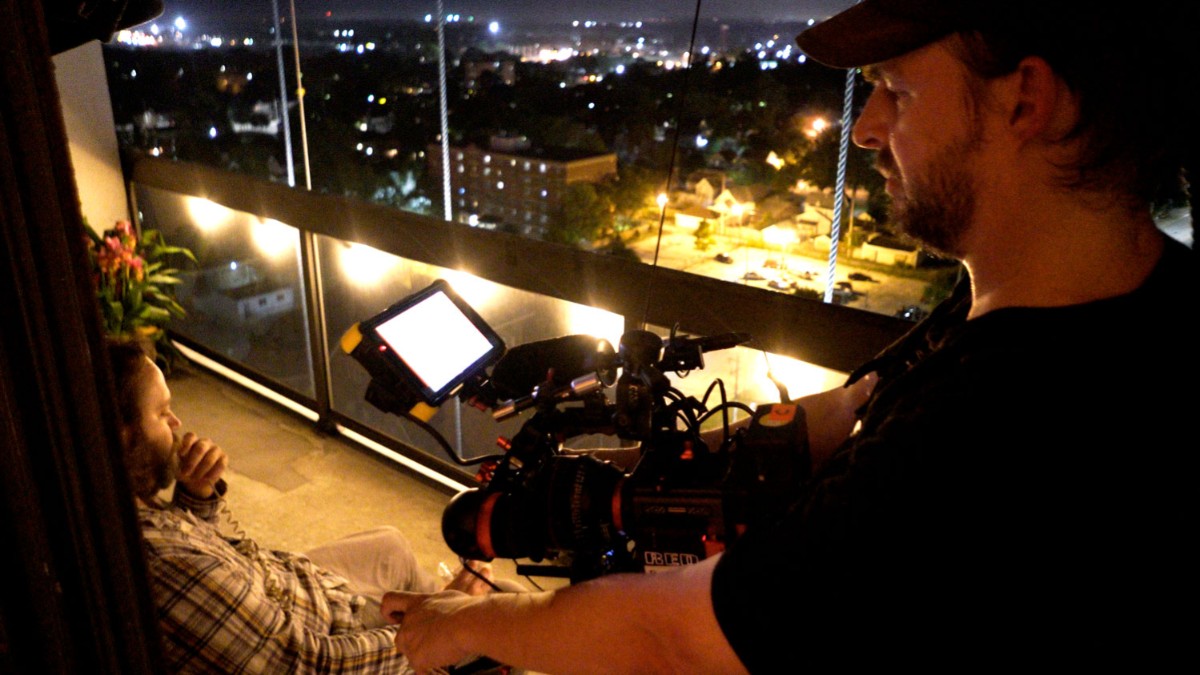
With such a creative and unique shoot – was it difficult to manage the budget?
GMB: Our budget was TINY. People buy average cars for more than our budget. That is to say, yes, it was difficult. The first thing we did was strip down the crew. We stripped it down to the bare bones. In some ways, Last Call would have been a perfect pandemic shoot, given it was so contained, with minimal cast and crew needed to complete it. The honest truth outside of that is that the film wouldn’t be made if not for the contributions and favors that were given to the production from wonderful businesses, restaurants and individuals in the city of Windsor, Ontario, Canada where the film was made. They definitely allowed us to keep what limited cash budget we had on making what you see on screen stronger.
What do you hope audiences will take away from LAST CALL?
GMB: I hope they see the wonderful performances in Daved and Sarah. They are the heart of the movie. I hope they experience the tension ride we aimed to create for them with the single-take style. Mostly I hope they take from the message of the movie that sometimes, all you need to do is stop and listen to those around you, someone who needs to talk.
You’ve done a variety of work from film, TV and music videos. How do you choose a project to write/direct/produce?
GMB: The story is first and forefront. Is this a story I want to tell, I feel passionate about telling and feel I’m a suited director to bring it to life. Outside of that it comes down to wanting to work with good people. Talented, hard working, ambitious people that are like minded. Nothing inspires me more than being on a project with people who truly want to create and aren’t simply creating for the sake of creating a marketable product. The create war of art vs. commerce is always there in some fashion or another and we are making entertainment and that means it has to be sell-able at the end of the day but there’s a difference sometimes in making something you truly believe in versus making something because it is the easy, safe project to make.
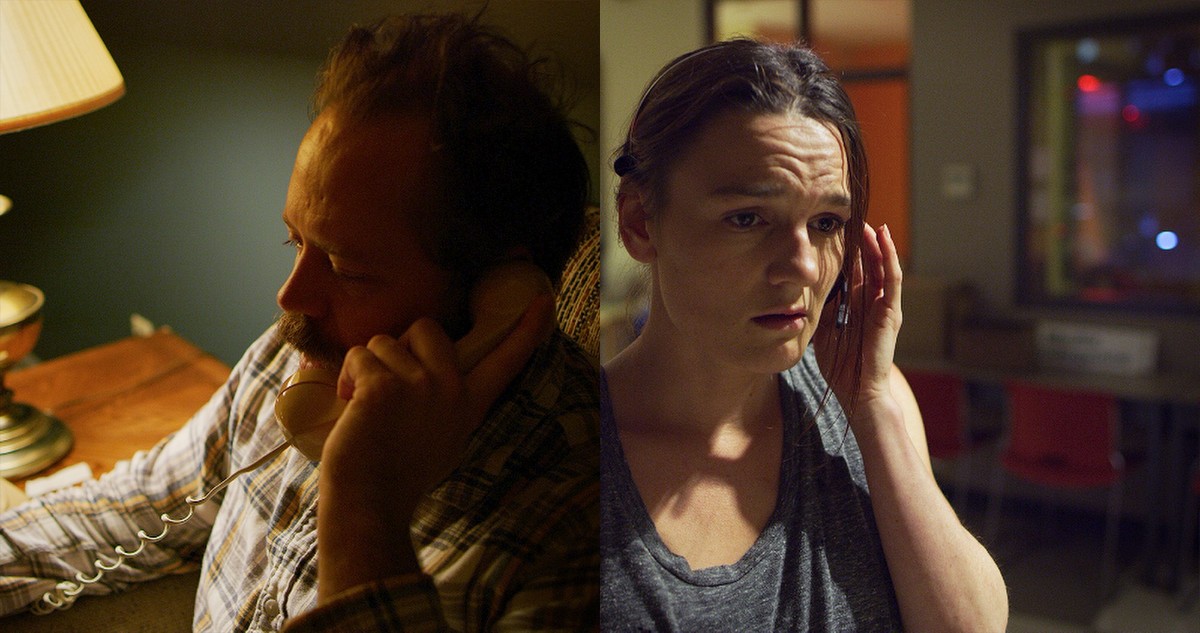
What do you think indie filmmakers need to do in today’s world of filmmaking to succeed?
GMB: With there being so many indie films made every year and it increases all the time… make something special. Be brave, be bold. Find a story that others’ aren’t telling. Get weird with style. Be YOU. Don’t make a film that ten other people could make and we’ve all seen before. Find the film that is you. That will really stand out from everything else you see around you.
As a filmmaker, is there anything about the making of the independent film business you struggle with?
GMB: The business end, often distribution. There’s a system. The system rarely works in favor of the filmmaker. It is being disrupted in pockets here and there but is truly due for an overhaul.
Indie filmmaking is a model of zero or small budgets. How do you get a film to the audience with such a budget?
GMB: Make a great film and you will find an audience. Make a film in a proven genre, say horror, that has a rabid fan base, you will find an audience. If the story works, if the acting is solid, audiences will be taken on the ride you’ve created. Concentrate on making the story the best it can be and be less concerned with what camera you are filming on. More traditional advice would be to cast a recognizable actor, even in a very small part, so that the film has some brand recognition to audiences.
Do you have any advice for other creators on how to finance and find distribution for their projects?
GMB: The traditional model is to find private investors through circles of people you know and have a sales agent broker a deal with a distributor. Sure, it still works but the models and methods of distributing are changing so I suggested studying up to find new models and what might work best for any given film. For funding a film, we live in a unique time where crowdfunding, things like Patreon for artist support exists. There are ways to finance or co-finance a project in new and exciting ways.
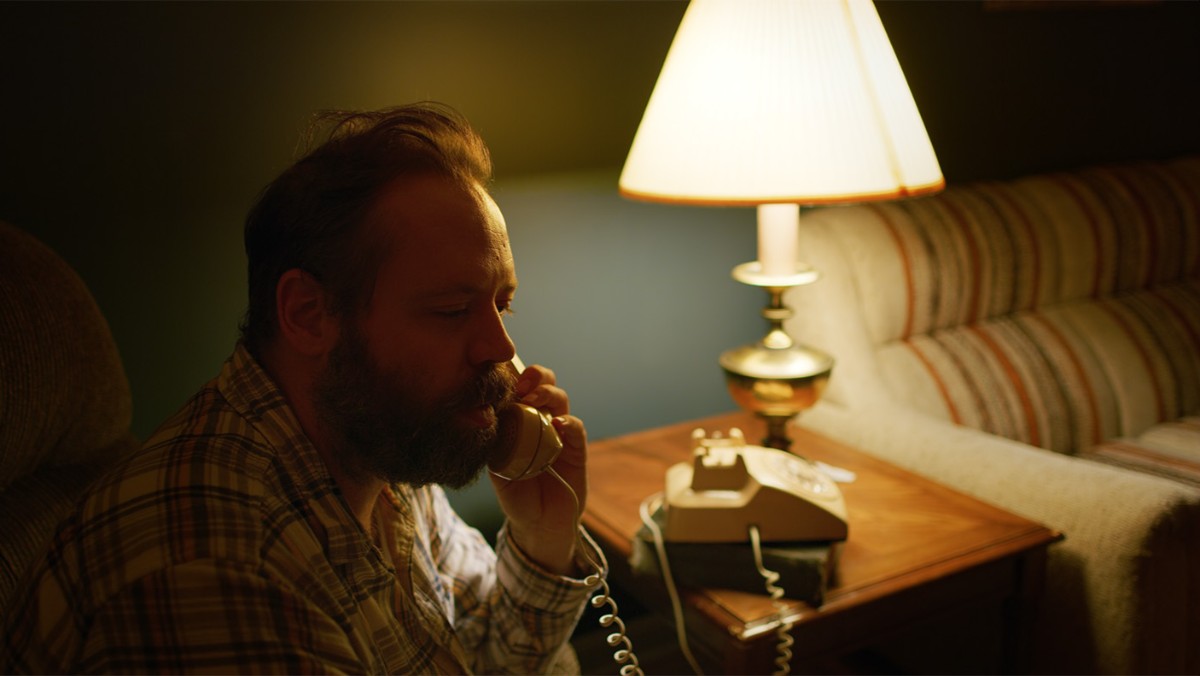
At what point in the filmmaking process do you need to start planning for distribution?
GMB: That really depends on the production. I’ve had projects that used a minimum guarantee from a distributor as part of the financing to get the film made and to help attract investors and I’ve had films where we didn’t seek distribution until we were finished with our festival run. There are no rules, which sometimes makes it so much more difficult to navigate what is right for your project. I will say it never hurts to research distributors and the market, in general, to make sure that your project is something that has the potential to be picked up by a distributor when it is finished.
How important is marketing? Do you think a project, especially an independent project can make a dent without it nowadays?
GMB: Marketing is everything unless you’re that one in a thousand films that is plucked out of the air by the Sundance Gods and gets amazing word of mouth. But even then, likely someone too that building momentum and put marketing dollars behind a campaign to grow the awareness to great heights. Whether you are doing the marketing on your own, doing it through taking the film to festivals, there is no getting around it as an independent filmmaker: You will have to do some marketing to stand out at all from the sea of other films and other entertainment distractions we all have access to every minute of every day.
What past and/or upcoming projects (films or otherwise) are you most proud of and why?
GMB: A music video I created for the artist SYML. “Where’s My Love”. The video was actually shot for another band and it didn’t work out. Luckily there were none of the band members in the video, it was story-driven with an actor. It worked out great with the SYML song, for who I only met SYML by chance working with the band Third Eye Blind. The video has gone on to some 50-60 million views and seems to have truly had an impact on the audience. That project is special to me.
Coming up, I’m close to starting a new feature called “Bless His Little Heart”. The project is exciting because we have engrained a brand new approach to distribution and marketing for the project that avoids all of the pitfalls and problematic issues the business of filmmaking can have.
Do you have any major goals in the future you’d like to achieve?
GMB: I will achieve them, let’s hope. I want to direct something in the Star Wars universe. I also want to work with the Duplass Brothers. If those aren’t achievable goals, I will quit and go farm land back home in Canada instead.
Tell us what you think of the interview with Gavin Michael Booth. What do you think of it? What ideas did you get? Do you have any suggestions? Or did it help you? Let’s have your comments below and/or on Facebook or Instagram! Or join me on Twitter.
Follow Gavin Michael Booth on Social Media
Website
IMDB
Facebook
Twitter
Instagram
YouTube
Vimeo
Richard Green Documentary, ‘I Know Catherine, The Log Lady’: Premiere in NYC, LA May 9th
Lynchian Doc I Know Catherine, The Log Lady Makes Hollywood Premiere 4/17, Rollout to Follow
In Camera by Naqqash Khlalid Launch on VOD April 29
Naqqash Khlalid’s Directs Nabhan Rizwan. In Camera stars an EE BAFTA Rising Star Award Nominee.
2025 Philip K. Dick Sci-Fi Film Festival Award Winners Announced
Vanessa Ly’s Memories of the Future Awarded Best PKD Feature
Dreaming of You by Jack McCafferty Debuts VOD & DVD for April Release
Freestyle Acquires “Dreaming of You” for April 15th Release
Hello Stranger by Paul Raschid set for London Games Festival & BIFFF
The film Is set for an April 10th Premiere at The Genesis Cinema in London (LGF) and BIFFF
Daydreamers Official Trailer by Timothy Linh Bui: Released by Dark Star Pictures
Daydreamers Vietnamese Vampire Thriller – May 2nd release









